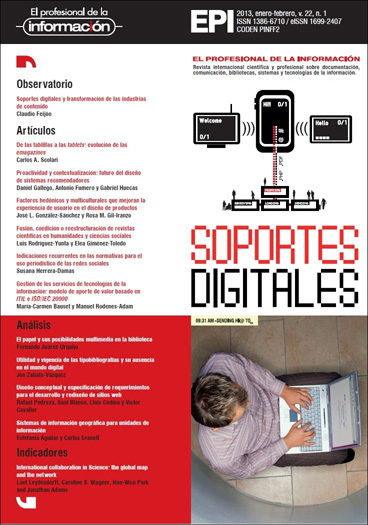Recurrent topics in guidelines for the use of social networks by journalists
DOI:
https://doi.org/10.3145/epi.2013.ene.06Keywords:
Social media policies, Social networks, Web 2.0, Guides, Guidelines, Journalism, Journalists, Ethics, Regulation, Self-regulation, Press, Media, Mass media, Radio, Television.Abstract
Mainstream media all over the world have been regulating the behavior of their journalists in social media, fearing these new forms of communications might damage the credibility of their institutions. Those who have not yet done so face with concern this unstoppable challenge and are now outlining their own guidelines for social media policies. In an effort to inspire the design of these new policies, this paper aims to approach the recurring topics in the policies already written by leading media such as AP, American Society of News Editors (ASNE), BBC, Bloomberg, Charlotte observer, Freedom communication, Los Angeles times, NPR, Orlando sentinel, Politico, Reuters, Rockford register star,Saint Louis post-dispatch, Source media group, The Denver post, The guardian, The journal gazette, The Manhattan Mercury, The New York times, The Roanoke times, The Wall Street journaly The Washington post. A qualitative content analysis of 22 of these policies has been conducted to identify these topics.Downloads
Downloads
Published
How to Cite
Issue
Section
License
Dissemination conditions of the articles once they are published
Authors can freely disseminate their articles on websites, social networks and repositories
However, the following conditions must be respected:
- Only the editorial version should be made public. Please do not publish preprints, postprints or proofs.
- Along with this copy, a specific mention of the publication in which the text has appeared must be included, also adding a clickable link to the URL: http://www.profesionaldelainformacion.com
- Only the final editorial version should be made public. Please do not publish preprints, postprints or proofs.
- Along with that copy, a specific mention of the publication in which the text has appeared must be included, also adding a clickable link to the URL: http://revista.profesionaldelainformacion.com
Profesional de la información journal offers the articles in open access with a Creative Commons BY license.




